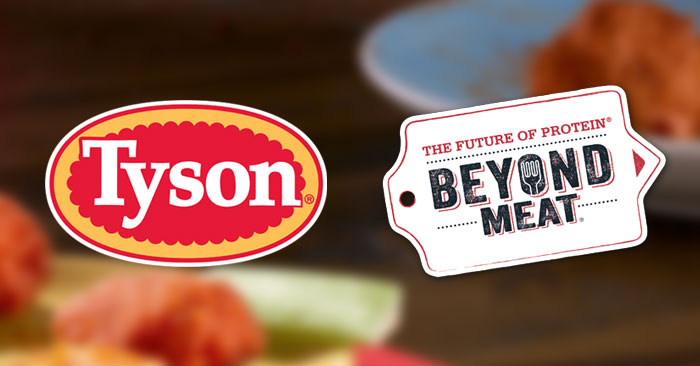CB Insights has dubbed 2019 “the year of getting closer to the consumer,” predicting that the next year will see brands and corporations seek a more direct connection with consumers through e-commerce platforms and personalization.
In a webinar last week entitled “Food And Beverage 2019: Trends To Watch,” Zoe Leavitt, senior intelligence analyst at CB Insights, highlighted these as among four macro themes set to shape the food and beverage industries over the next 12 months.
Health & Wellness
Leavitt named plant-sourced protein, particularly pea protein, as one of the major trends for the coming year with the expectation that the global pea protein supply will expand significantly as production plants announced in 2018 begin to open in 2019.
Investments and acquisitions in plant protein, Leavitt said, will continue to multiply as major corporations seek to establish healthier brand portfolios, citing PepsiCo’s recent acquisition of Health Warrior as an example. While plant protein startups like Beyond Meat and Impossible Foods target meat eaters, Tyson is looking to shift its brand image from meat company to protein innovator by also investing in lab-grown meat.
Wellness-focused branding will also be a major factor, Leavitt noted, as many corporations have launched small brands aimed at health-seeking consumers, such as Kellogg’s Happy Inside and Nestle’s Wildscape. Wellness brands are now targeting consumers by advertising products’ outcomes (such as “sleep” or “beauty”) rather than specific ingredients, while beauty and apparel retailers are responding by building out in-store wellness sets to drive foot traffic.
An emerging trend Leavitt noted within the health and wellness market is cannabis and CBD, particularly following federal legalization of CBD under the Farm Bill, signed on Dec. 12. Beer maker Molson Coors and liquor conglomerate Constellation Brands have invested in producing cannabis beverages for the Canadian market, and in the food space, Oklahoma-based edibles company Acreage Holdings is positioning itself to become the first national cannabis CPG company after its recent acquisition of manufacturer Form Factory.
Vertical Integration
According to Leavitt, exercising tighter control over online points of sale will be essential for brands in 2019, with direct-to-consumer e-commerce sales expected to be especially crucial. Brands that have outsourced such operations, particularly those selling through Amazon, may struggle over the long term as the online retailer provides limited opportunities for brand-building and gathers shoppers’ data to redirect them to its own private label products. The strategy for brands, Leavitt suggested, is to gain a stronger web presence by developing engaging products with packaging optimized for e-commerce or by creating listings that put a greater emphasis on the product itself, as frozen food brand Daily Harvest has done.
Personalization
Leavitt noted consumers are often overwhelmed by having “too many choices.” In response, brands should look to create products that meet consumers’ specific needs, such as weight loss or energy boosts, and then sell those products directly. Alternatively, she added, startups like Soylent and Brandless are solving the same “too many choices” issue by offering a standardized line of products.
Brands will also look to organize products by lifestyle needs (keto, vegan) or life experiences (weddings, baby showers). Meal kits, she believes, will have a reduced role as subscriptions waver and companies look to partner with grocery stores.
Digital and Physical Overlap
According to Leavitt, alternative offline points of sale will be an emerging trend as brands seek out untapped CPG opportunities, such as partnering with co-working office providers like WeWork or with ride-sharing apps and travel companies. Artificial intelligence-based e-commerce may also be on the rise as Amazon continues to encourage customers to use its Alexa voice ordering capability. In-store robotics could also be an experimental trend in the future, Leavitt noted, with inventory management robots likely proving the most meaningful for retailers.


